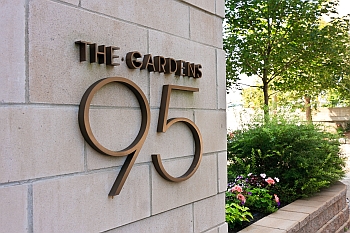Judges were appointed to ease the burden of Moses’ mediatorial task.[1] Israel’s mediators were given a measure of Moses’ Spirit.[2] It was Moses’ desire that all believers would have the capacity to make judgments.[3] While Moses’ immediate purpose was to resolve disputes, his ultimate purpose was to teach the people the principles of God’s Law and make them competent therein.[4] Not until the New Covenant did God’s people become
• kings and priests
• a kingdom of priests
• a royal priesthood.[5]
Prior to this, they lacked the Spiritual power which comes only through Christ.[6]
Notes
1. Exodus 18:21-26
2. Numbers 11:17
3. Numbers 11:29; 35:24; cf. Acts 2:17f.; Deuteronomy 5:29-31; Proverbs 6:6-8; 30:24,27
4. Exodus 18:16,20
5. These phrases are obviously saying the same thing:
Exodus 19:5-6; Hosea 1:9; 2:23; 4:6; 1 Peter 2:5-10; Revelation 1:6; 5:10
6. Romans 8:3-5; Hebrews 7:19; 8:8-13; John 1:12,17
References
Elders as Judges
Patriarchs as "Elders"
The Elder's Checklist
The resources above attempt to show that all the duties of "elders" (as defined by those who defend the traditional view of the institutional church) are duties for all Christians, and that all Christians should aspire to be servants when they are elders, exercising the offices of prophet, priest, king, and judge, in the way these offices are theoretically exercised in the traditional view only by the "ordained" (insofar as these functions and offices are appropriately exercised by anyone today). In other words, if anyone has a duty as a priest or king, everyone has that duty, and we should all be growing into those duties.
Numbers 11:29 is a key passage, showing Moses' desire not to be a permanent judge all of his life over a slave-like people, but for heads of households in Israel to be self-governing:
25 Then the LORD came down in the cloud, and spoke to him, and took of the Spirit that was upon him, and placed the same upon the seventy elders; and it happened, when the Spirit rested upon them, that they prophesied, although they never did so again.
26 But two men had remained in the camp: the name of one was Eldad, and the name of the other Medad. And the Spirit rested upon them. Now they were among those listed, but who had not gone out to the tabernacle; yet they prophesied in the camp. 27 And a young man ran and told Moses, and said, “Eldad and Medad are prophesying in the camp.”
28 So Joshua the son of Nun, Moses’ assistant, one of his choice men, answered and said, “Moses my lord, forbid them!”
29 Then Moses said to him, “Are you zealous for my sake? Oh, that all the LORD’s people were prophets and that the LORD would put His Spirit upon them!” 30 And Moses returned to the camp, he and the elders of Israel.
All Christians are to be kings (judges) and priests (note 5). The idea of a separate caste of "ordained" "elders" who function as kings and priests over the rest of the (non-functioning, non self-governing) Body was a temporary pedagogy in the Old Testament and is now sub-Biblical.
Sunday, November 9, 2008
Subscribe to:
Post Comments (Atom)

No comments:
Post a Comment